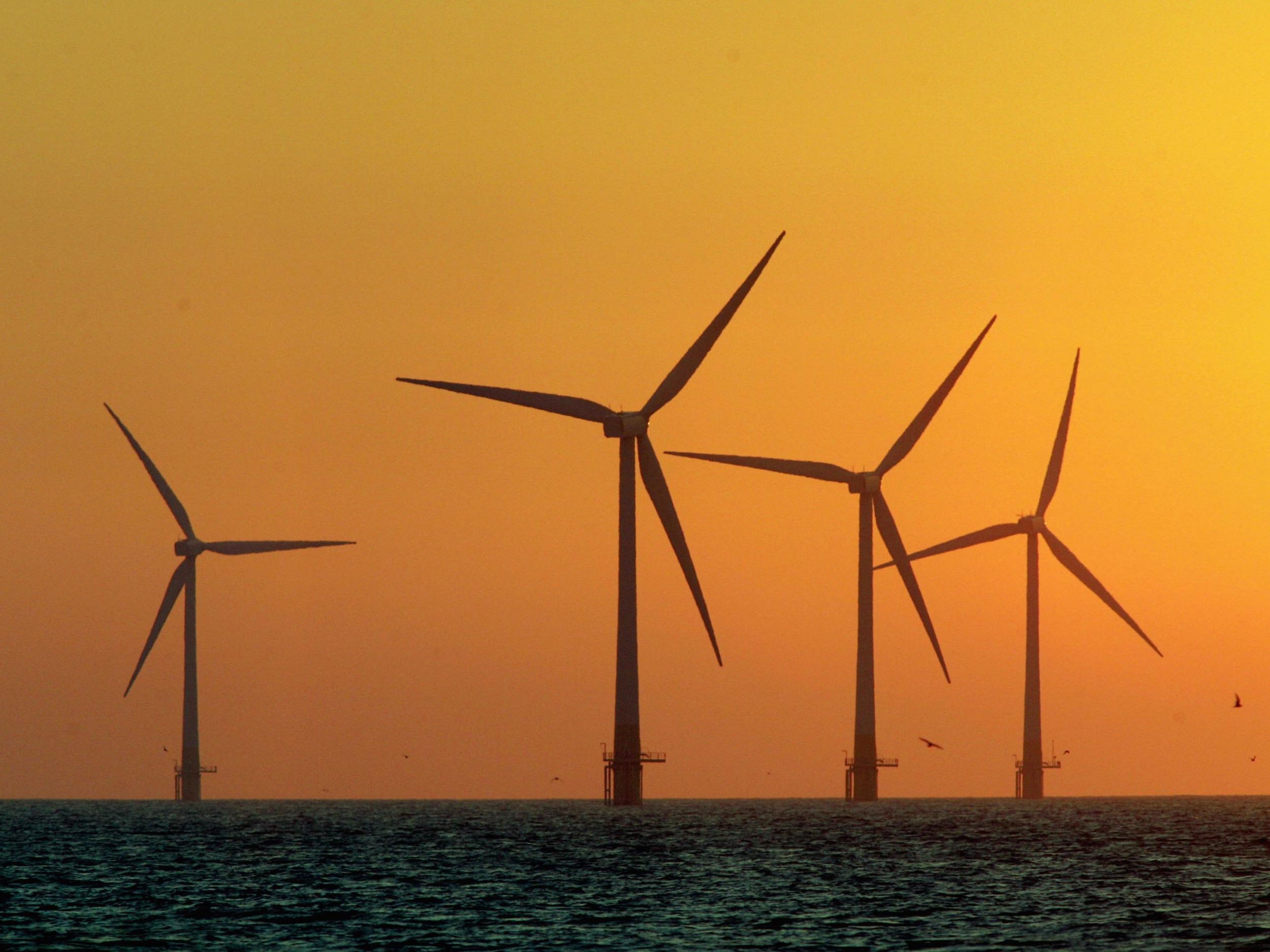Renewable energy now makes up nearly third of all electricity generated in UK
Latest government figures show ‘record high’ for electrical power produced from sources like wind and solar

Your support helps us to tell the story
From reproductive rights to climate change to Big Tech, The Independent is on the ground when the story is developing. Whether it's investigating the financials of Elon Musk's pro-Trump PAC or producing our latest documentary, 'The A Word', which shines a light on the American women fighting for reproductive rights, we know how important it is to parse out the facts from the messaging.
At such a critical moment in US history, we need reporters on the ground. Your donation allows us to keep sending journalists to speak to both sides of the story.
The Independent is trusted by Americans across the entire political spectrum. And unlike many other quality news outlets, we choose not to lock Americans out of our reporting and analysis with paywalls. We believe quality journalism should be available to everyone, paid for by those who can afford it.
Your support makes all the difference.Electricity generation from renewable energy has reached a “record high”, according to new government statistics.
The third quarter of 2017 saw the share of electricity generated from renewable sources increase by nearly 5 per cent from the same period last year, reaching 30 per cent.
The latest record is “yet another nail in the coffin for the claim that renewables cannot be a sizeable part of the UK’s electricity mix”, according to Dr Jonathan Marshall, energy analyst at the Energy and Climate Intelligence Unit.
Low-carbon electricity’s share of generation increased to the highest ever point of 54.4 per cent, particularly due to a upsurge in wind energy.
Besides sources like wind and solar, low-carbon electricity also includes nuclear power.
The results are outlined in the Government’s latest Energy Trends report.
With this year’s slight decrease in the contribution of nuclear power, the boost in low-carbon electricity came largely from recent investment in wind farms and to a lesser extent solar energy.
According to Dr Marshall, this vindicates those who have had confidence in the ability of renewable energy to reliably supply the UK with power.
“When the UK started to put wind farms and solar panels up and down the country, there were a lot of warnings that the unpredictability of the way electricity is generated – as it is only produced when the wind blows and sun shines – would lead to issues balancing the grid,” he said.
Prior to the Climate Change Act of 2008, energy industry representatives and some politicians claimed renewable energy sources would not be able to supply reliable enough for a modern economy to run on.
“These quarterly statistics coming out showing higher and higher rates of renewables show how far away from the mark these predictions were,” said Dr Marshall.
The electricity sector made up 17.5 per cent of the UK’s overall fuel consumption in 2016, and is one of the three major energy system components along with heating and transport.
Though it is makes up a smaller fraction of overall consumption, the electricity sector has been the main target of renewable efforts.
Not only is the sector easier to “decarbonise”, but renewable electricity can then be used to revolutionise the other sectors, for example through the electrification of transport.
A spokeswoman from the Department for Business, Energy and Industrial Strategy attributed the increase in renewable energy use primarily to “increased wind capacity”, as well as higher wind speeds in recent months.
Recent restrictions in the construction of onshore wind farms have forced the industry to build offshore. Such farms tend to be more expensive to construct, but can be bigger and work more efficiently.
“Having these developments in the pipeline that will come on in the next three to five years should see the energy from renewable sources continue to increase,” said Dr Marshall.
Such developments will also have real-world impacts for the UK population.
Dr Marshall believes: “Record low prices for new renewables will bring bills down for British homes and businesses, on top of maintaining the UK’s leading position in the global battle against climate change.”
Join our commenting forum
Join thought-provoking conversations, follow other Independent readers and see their replies
Comments